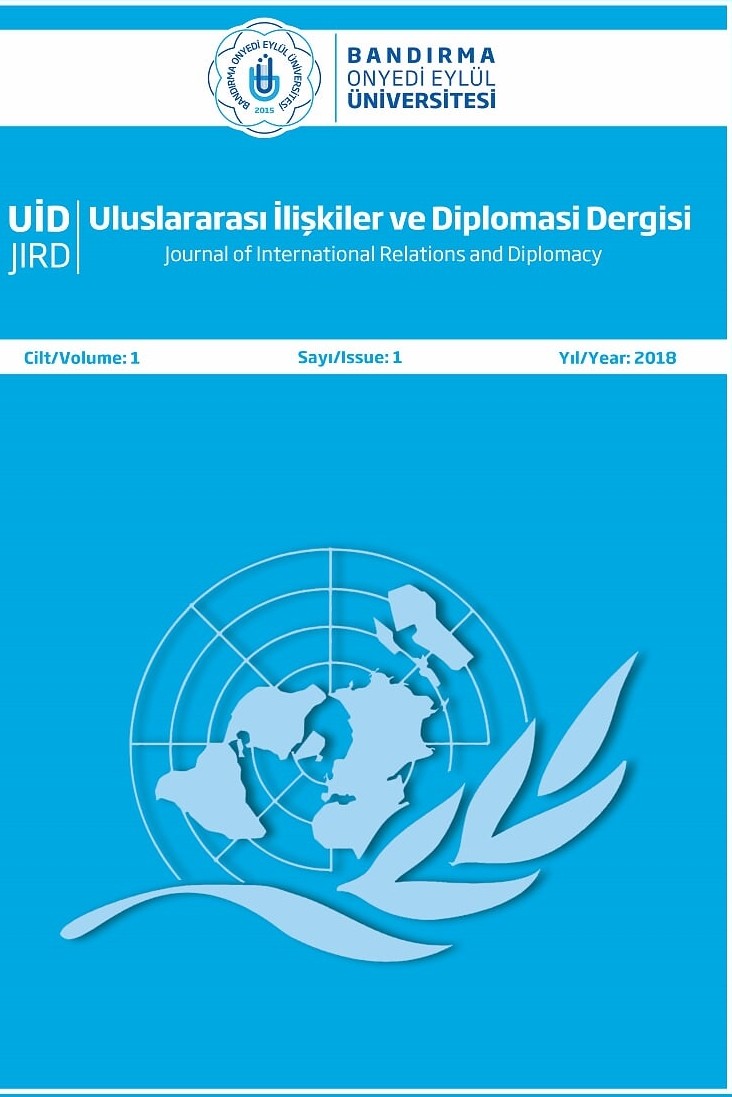EKİM SAVAŞI VE İSRAİL KARAR ALMA MEKANİZMASI: TECRÜBELERİN VE GRUP DÜŞÜNCESİNİN OLUMSUZ ETKİSİ
Son dönemde devletin ve özellikle de dış politika yapımının bir kapalı kutu olmaktan gittikçe uzaklaşması karar alma süreçlerine yönelik ilgi ve gözlemlerin artmasına yol açmıştır. Bekleneceği üzere olağan durumlar için yapılandırılmış bu süreçlerin karşılaşılan kriz ve savaş gibi durumlardaki işleyiş biçimi ise ayrı bir önem ifade etmektedir. Bu çalışma, İsrail’in kendine has yapısal özelliklerinin etkisiyle şekillenmiş karar alma mekanizmasının 1973 yılındaki Ekim (Yom Kippur) Savaşı sırasındaki işleyişini ele almaktadır. Bu konu üzerine yapılmış çalışmaların ve yayınlanmış anı niteliğindeki eserlerin bağlamsal analizi yoluyla bu dönemde alınan kararlarda önemli rol oynayan etmenler, çalışmanın merkezinde bulunacaktır. Temelde, üç kritik karara odaklanılarak, bu kararların alınışında etkili olan faktörler incelenecek ve bu şekilde karar grubu üyelerinin geçmişte edindikleri tecrübelerin ve grup düşüncesi (grupthink) kavramının söz konusu bu başarısız kararların ortaya çıkışındaki etkisi aydınlatılacaktır.
Anahtar Kelimeler:
İsrail, Dış Politika, Karar Alma, Grup Düşüncesi, Ekim Savaşı
THE OCTOBER WAR AND ISRAEL’S DECISION-MAKING MECHANISM: THE ADVERSE IMPACT OF EXPERIENCES AND GROUPTHINK
The transformation of the state, and especially the foreign policy-making, triggered an increase in the interest and the number of studies focusing on this process. Not surprisingly, such processes are structured for usual circumstances, and their functioning in times of war or crisis, in this sense, becomes considerably significant. This study examines the structure and formation of the Israeli decision-making mechanism, shaped by the country’s idiosyncrasies, throughout the October War (Yom Kippur), in 1973. Built on a contextual analysis of past studies and bibliographic materials with regard to this topic, the variables that have played a substantial role in the making of the relevant decisions would be at the center of this article. By essentially focusing on three major decisions, the impact of multiple factors on these decisions would be treated, and the adverse nature of the influence of past experiences and the concept of groupthink would be enlightened.
Keywords:
Israel, Foreign Policy, Decision-Making, Groupthink, October War,
___
- Allison, G. T. (1969) “Conceptual Models and Cuban Missile Crisis”, The American Political Science Review, 63(3): 689–718. DOI: 10.2307/1954423.
- Brecher, M. (1979) “State Behavior in International Crisis: A Model”, The Journal of Conflict Resolution, 23(3): 446–480. DOI: 10.1177/002200277902300304.
- Brecher, M. (1980) “Decisions in Crisis: Israel, 1967 and 1973”, Berkeley: University of California.
- Breuning, M. (2007) “Foreign Policy Analysis: A Comparative Introduction”, New York: Palgrave Macmillan.
- Brownstein, L. (1977) “Decision Making in Israeli Foreign Policy: An Unplanned Process”, Political Science Quarterly, 92(2): 259–279. DOI: 10.2307/2148353.
- Efegil, E. (2016) “Dış Politika Analizi: Ders Notları”, Ankara: Nobel.
- El-Gendy, K. (2010) “The Process of Israeli Decision Making: Mechanisms, Forces and Influences”, Beirut: Al-Zaytouna Centre for Studies and Consultations.
- Hermann, C. F. (1972) “Threat, Time and Surprise: A Simulation of International Crisis” C. Hermann (Ed.) International Crises: Insights from Behavioral Research, New York, Free Press.
- Hermann, C. F. ve Hermann, M. (1989) “Who Makes Foreign Policy Decisions and How: An Empirical Inquiry”, International Studies Quarterly, 33(4): 361–387. DOI: 10.2307/2600518.
- Hermann, C. F., Stein, J. G., Sundelius, B. ve Walker, S. G. (2001) “Resolve, Accept, or Avoid: Effects of Group Conflict on Foreign Policy Decisions”, International Studies Review, 3(2): 133–168. DOI: 10.1111/1521-9488.00236.
- Hermann, M. (2001) “How Decision Units Shape Foreign Policy: A Theoretical Framework”, International Studies Review, 3(2): 47–81. DOI: 10.1111/1521-9488.00234.
- Hudson, V. M. (2014) “Foreign Policy Analysis: Classic and Contemporary Theory”, Lanham: Rowman & Littlefield.
- Janis, I. L. (1972) “Victims of Groupthink: A Psychological Study of Foreign-Policy Decisions and Fiascoes”, Boston: Houghton Mifflin.
- Jervis, R. (1968) “Hypotheses on Misperception”, World Politics, 20(3): 454–479. DOI: 10.2307/2009777.
- Kegley, C. (1987) “Decision Regimes and the Comparative Study of Foreign Policy” Charles Kegley, Charles Hermann ve James Rosenau (Eds.), New Directions in the Study of Foreign Policy Analysis, London, Harper Collins Academic.
- Keleşoğlu, E. (2014) “İsrail’in Dış Politikası” Faruk Sönmezoğlu, Özgün Erler Bayır (Eds.), Dış Politika: Karşılaştırmalı Bir Bakış, İstanbul, Der.
- Meir, G. (1975) “My Life”, New York: Puntham.
- Mintz, A. ve DeRouen, K. (2010) “Understanding Foreign Policy Decision Making”, Cambridge: Cambridge University Press.
- Schafer, M. ve Crichlow, S. (2002) “The ‘Process-Outcome’ Connection in Foreign Policy Decision Making: A Quantitative Study Building on Groupthink”, International Studies Quarterly, 46(1): 45–68. DOI: 10.1111/1468-2478.00222.
- Schulze, K. E. (1998) “Israeli Crisis Decision-making in the Lebanon War: Group Madness or Individual Ambition?”, Israel Studies, 3(2): 215–237. DOI: 10.2979/ISR.1998.3.2.215.
- Shapiro, J. M. & Bonham, G. M. (1973) “Cognitive Process and Foreign Policy Decision-Making”, International Studies Quarterly, 17(2): 147–174. DOI: 10.2307/2600226.
- Sönmezoğlu, F. (2014) “Uluslararası Politika ve Dış Politika Analizi”, İstanbul: Der.
- ISSN: 2651-4729
- Başlangıç: 2018
- Yayıncı: Bandırma Onyedi Eylül Üniversitesi
